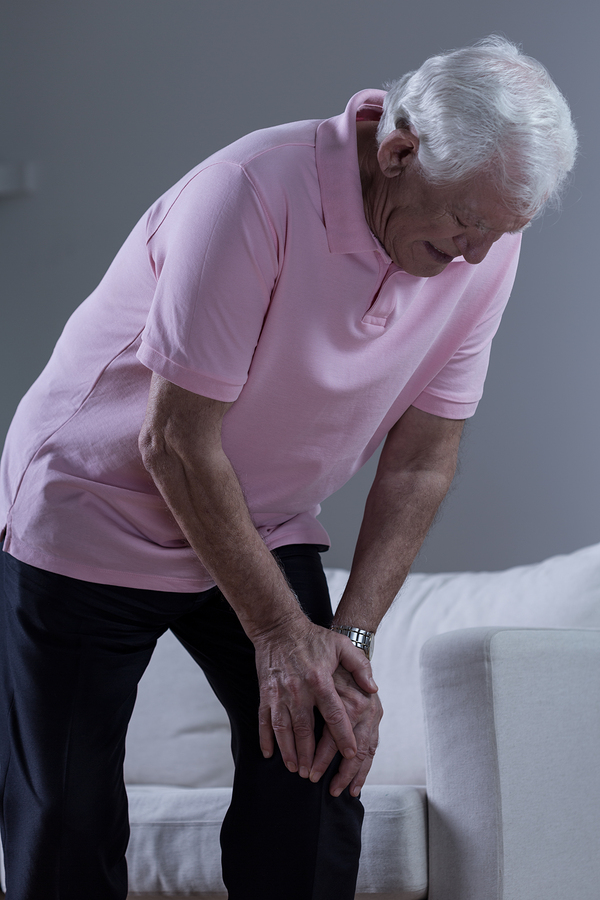“Arthritis” is a general term referring to joint pain, swelling, stiffness or disease. There are actually over 100 different kinds of arthritis, affecting over 50 million adults in the US. Rheumatoid arthritis, ankylosing spondylitis and gout are common types, but the most widespread is osteoarthritis, which accounts for more than half of all cases.
Osteoarthritis: Wearing Away a Joint’s Padding
Osteoarthritis occurs when a joint’s cushioning (cartilage) wears away. The bones began to rub against each other, which can be very painful. This can lead to swelling, stiffness and weakness in the affected joint(s). Osteoarthritis gets worse over time, so eventually older adults may become severely disabled by it.
Which Joints are Affected by Osteoarthritis?
Osteoarthritis can affect any joint, or several at once. It most frequently affects the hands, knees, hips or spine.
Risk Factors for Osteoarthritis
Some of the things that can contribute to the risk of developing osteoarthritis include a family history of it, past injuries, overuse or repetitive movements, being overweight or advanced age.
What Helps Osteoarthritis?
Stiffness is often worse in the morning, or after periods of inactivity. Regular physical activity is helpful for minimizing the effects of arthritis and keeping joints moving.
Warm packs can bring comfort to achy joints and cold packs can help reduce swelling. Many seniors require medication to help manage their symptoms. If they get too bad, surgery may be needed.
Osteoarthritis Gets Worse Over Time
Osteoarthritis is a degenerative disease, which means it gets worse over time. The pain can become chronic, and often interferes with sleep. The pain and disability can also contribute to depression in seniors who find that they can no longer do the things they want to do.
Elderly Care can Help Seniors with Osteoarthritis
Elderly care aides can help seniors with osteoarthritis in numerous ways. They can help seniors stay active and involved with their favorite activities. Elder care aides can also help with the daily tasks that become difficult given their pain and limitations.
Staying Active
Many seniors find that going for walks with their elderly care aides helps them to keep them moving and active. It helps many feel safe and makes the time more enjoyable as well. Some seniors enjoy swimming or getting to the gym. Elderly care aides can drive them there, help them in and out of the car and even assist them in the locker rooms as needed.
Personal Care
Elderly care aides can help with personal care – including dressing, bathing and using the toilet – when these tasks become overwhelming, or dangerous.
Shopping, Chores and Meal Preparation
Elderly care aides can not only help with mobility, personal care and transportation. They can also help with shopping and meal preparation, two tasks that can be exhausting and challenging for seniors with arthritis. Elderly care aides can also help out with light housework, pet care, laundry, and bed linen changes.
By helping conserve limited energy, overcome obstacles and knock down barriers, and provide caring companionship, elderly care aides can support seniors with arthritis to enjoy independence to their fullest and live their best life.
Sources
https://www.mayoclinic.org/diseases-conditions/osteoarthritis/symptoms-causes/syc-20351925
https://www.arthritis.org/health-wellness/about-arthritis/understanding-arthritis/what-is-arthritis
https://www.healthline.com/health/arthritis-types#osteoarthritis
If you or an aging loved one is considering elderly care in Holmes Beach, FL, please contact the caring staff at Home Helpers of Bradenton. Call today: (941) 499-5946.

